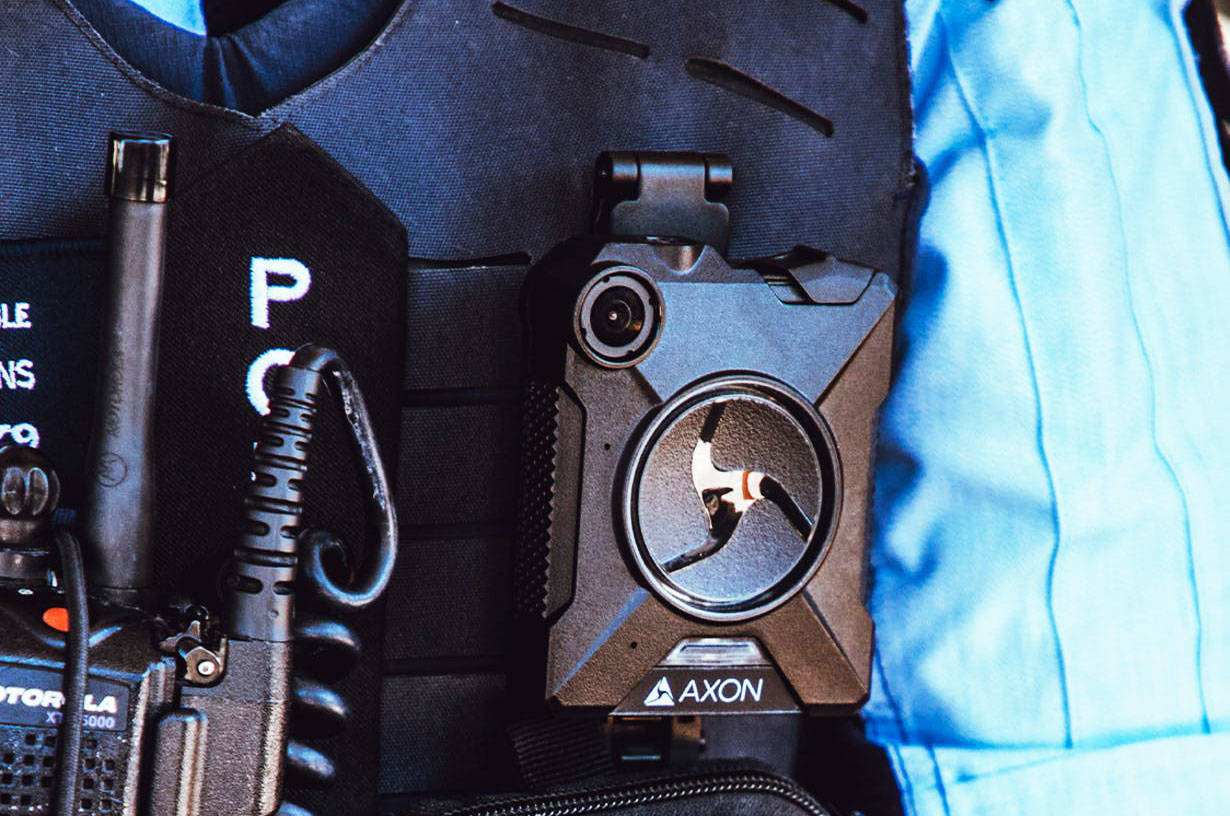The Auburn City Council discussed outfitting Auburn police with body-worn cameras among other new tech during its study session on July 12.
Body-worn cameras are already in use by several surrounding police departments including Kent, Seattle and Tacoma.
Two representatives from Axon — the company that supplies Tasers and body cameras to police across the country — presented the company’s “Officer Safety Plan” to the council during the study session.
The plan includes the latest versions of Axon’s Taser, body and car cameras, as well as virtual reality training and cloud storage for evidence. The plan would cost roughly $2.4 million over five years, said Axon’s Allen Sliper during the study session.
Councilmembers voiced concerns on the efficacy of some of the devices Axon offers.
“Body cameras have been controversial in some respects. Sometimes they’re considered to be highly successful, other times considered to be not so highly successful,” Deputy Mayor Claude DaCorsi said. “I’m just curious about the national success rate in relation to the use of body cameras and how widely they are accepted by officers.”
Sliper said the number one indicator of body cam success is a reduction in complaints against officers, specifically fewer false accusations against police officers.
“Automatically people are not going to make accusations and say something happened that didn’t because now they know there’s video involved,” Sliper said
A study published by George Mason University found that both the public and officers generally support body cameras because police believe the cameras will protect them against the public and vice versa.
Body cameras may not actually change the behavior of officers or citizens, according to the same study. The study did find that the use of body cameras can reduce the number of complaints made against officers. Body cameras did not consistently impact officers’ use of force, according to the study.
One of the more futuristic devices offered in Axon’s Officer Safety Plan is the virtual reality (VR) headset and “Community Engagement Training.” Axon markets their VR system as a way for police departments to train officers on how to deal with people who have schizophrenia, dementia or other mental illnesses. Officers would use the VR headset to have conversations with an artificial-intelligence-generated person.
Another aspect of Axon’s Officer Safety Plan is equipping officers with the latest Tasers. Tasers are less-lethal weapons that fire two prongs into a person and deliver an electric shock with the goal of subduing the person.
Councilmember James Jeyaraj was concerned with how many people have died from being shocked with Axon’s Taser. Jeyaraj noted that the COVID-19 pandemic has left many people with permanent heart issues.
Axon representative James Hillary said he would have to do more research, but suggested that zero people have been killed directly by a Taser weapon.
“From a Taser deployment I would say zero, but from other circumstances there’s definitely a number,” Hillary said.
A report by Reuters found that there were over 1,000 cases in the U.S. where a person died after being shocked by a Taser. Autopsy results listed the Taser as either the cause or contributing factor in 153 of those deaths.
Axon also provides police departments with a legal team to defend an officer in cases involving a Taser, Hillary said.
The council will consider whether to move forward with equipping Auburn police with body worn cameras and the Officer Safety Plan.
However, the Washington State Legislature recently passed SHB 1223, which will require law enforcement officers to record audio and video of most interrogations starting on Jan. 1, 2022. So one way or another, Auburn Police will likely be outfitted with body-worn cameras in the near future.



